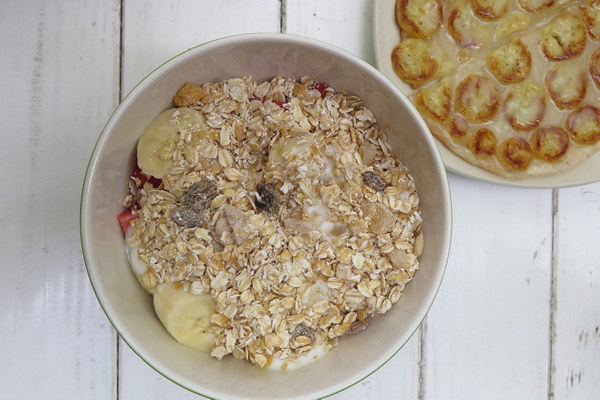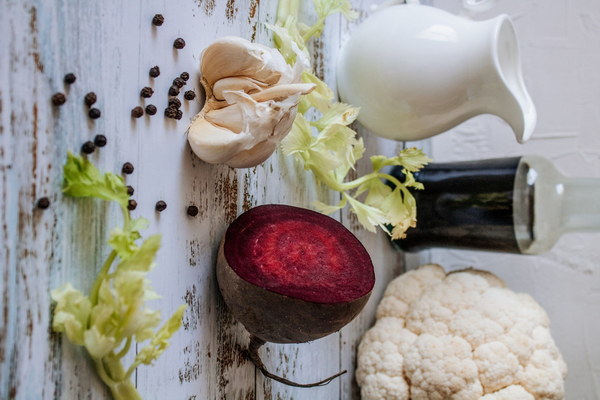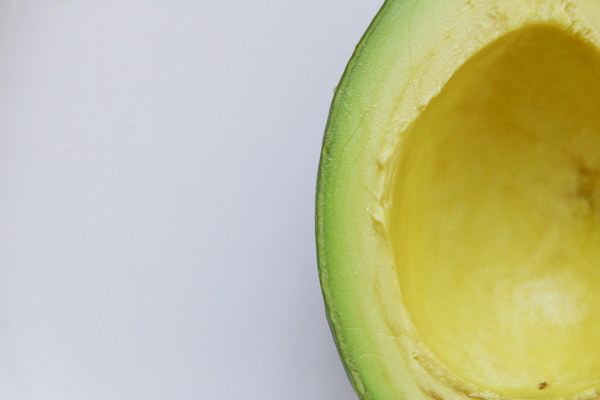Nurturing Your Pregnancy Essential Nutritional Tips for the First Trimester
Embarking on the journey of pregnancy is an exciting time for expectant mothers. However, it is equally crucial to ensure that the body receives the right nourishment during the first trimester. This period is when the fetus undergoes significant development, making it essential to provide it with the necessary nutrients for a healthy start. In this article, we will explore essential nutritional tips to help you navigate the first trimester and support your baby's growth.
1. Balance Your Diet
A well-balanced diet is the cornerstone of a healthy pregnancy. Focus on incorporating a variety of foods from different food groups to ensure you receive a wide range of essential nutrients. Here are some key components to include in your diet:
a. Fruits and Vegetables: Aim for at least five portions of fruits and vegetables per day. These foods are rich in vitamins, minerals, and fiber, which are vital for your baby's development and overall well-being.
b. Whole Grains: Incorporate whole grains such as brown rice, whole wheat bread, and oatmeal into your diet. They provide essential nutrients like iron, B vitamins, and fiber, which are crucial for your baby's growth.
c. Lean Proteins: Include lean proteins such as poultry, fish, beans, lentils, tofu, and eggs in your diet. These foods provide essential amino acids, which are the building blocks of your baby's cells.
d. Dairy: Consume dairy products like milk, cheese, and yogurt to obtain calcium, vitamin D, and protein. These nutrients are essential for your baby's bone and teeth development.
2. Folic Acid
Folic acid is a vital nutrient during pregnancy, particularly in the first trimester. It helps prevent neural tube defects in the developing fetus. The recommended daily intake of folic acid is 400 micrograms (mcg) for women who are planning to become pregnant or are already pregnant.
You can obtain folic acid from natural sources such as leafy green vegetables, beans, and fortified cereals. However, taking a prenatal vitamin supplement that contains folic acid is often recommended to ensure an adequate intake.
3. Omega-3 Fatty Acids
Omega-3 fatty acids are essential for your baby's brain and eye development. The best sources of omega-3s are fatty fish such as salmon, mackerel, and sardines. Aim to consume at least two servings of fatty fish per week, but avoid high-mercury fish like shark, swordfish, and king mackerel.

If you are vegetarian or do not consume fish, consider taking an omega-3 supplement that contains algae-based DHA. However, consult with your healthcare provider before starting any supplement.
4. Iron
Iron is crucial for the production of hemoglobin, which carries oxygen throughout your body and to your baby. During pregnancy, your body requires more iron to support the growing fetus and increased blood volume.
Include iron-rich foods in your diet, such as lean red meat, poultry, fish, beans, lentils, tofu, and fortified cereals. To enhance iron absorption, pair iron-rich foods with vitamin C-rich foods, such as oranges, strawberries, and bell peppers.
5. Hydration
Staying hydrated is essential during pregnancy. Drink plenty of water throughout the day to support your baby's growth and prevent dehydration. Aim for at least eight glasses of water per day, but adjust your intake based on your activity level and weather conditions.
6. Avoid Risky Foods
To protect your baby from potential harm, it is important to avoid certain foods during the first trimester. These include:
a. Undercooked or raw meats, fish, and eggs: These can contain harmful bacteria like salmonella and listeria.
b. Soft cheeses: Cheese made from unpasteurized milk can contain harmful bacteria.
c. Deli meats: These may contain listeria, a bacteria that can be harmful to your baby.
7. Consult with Your Healthcare Provider
As you navigate the first trimester, it is crucial to consult with your healthcare provider about your nutritional needs. They can provide personalized advice and answer any questions you may have regarding your diet during pregnancy.
In conclusion, a well-rounded diet and proper nutrition are essential during the first trimester of pregnancy. By focusing on a balanced diet, incorporating essential nutrients, and avoiding risky foods, you can support your baby's growth and ensure a healthy pregnancy journey.









